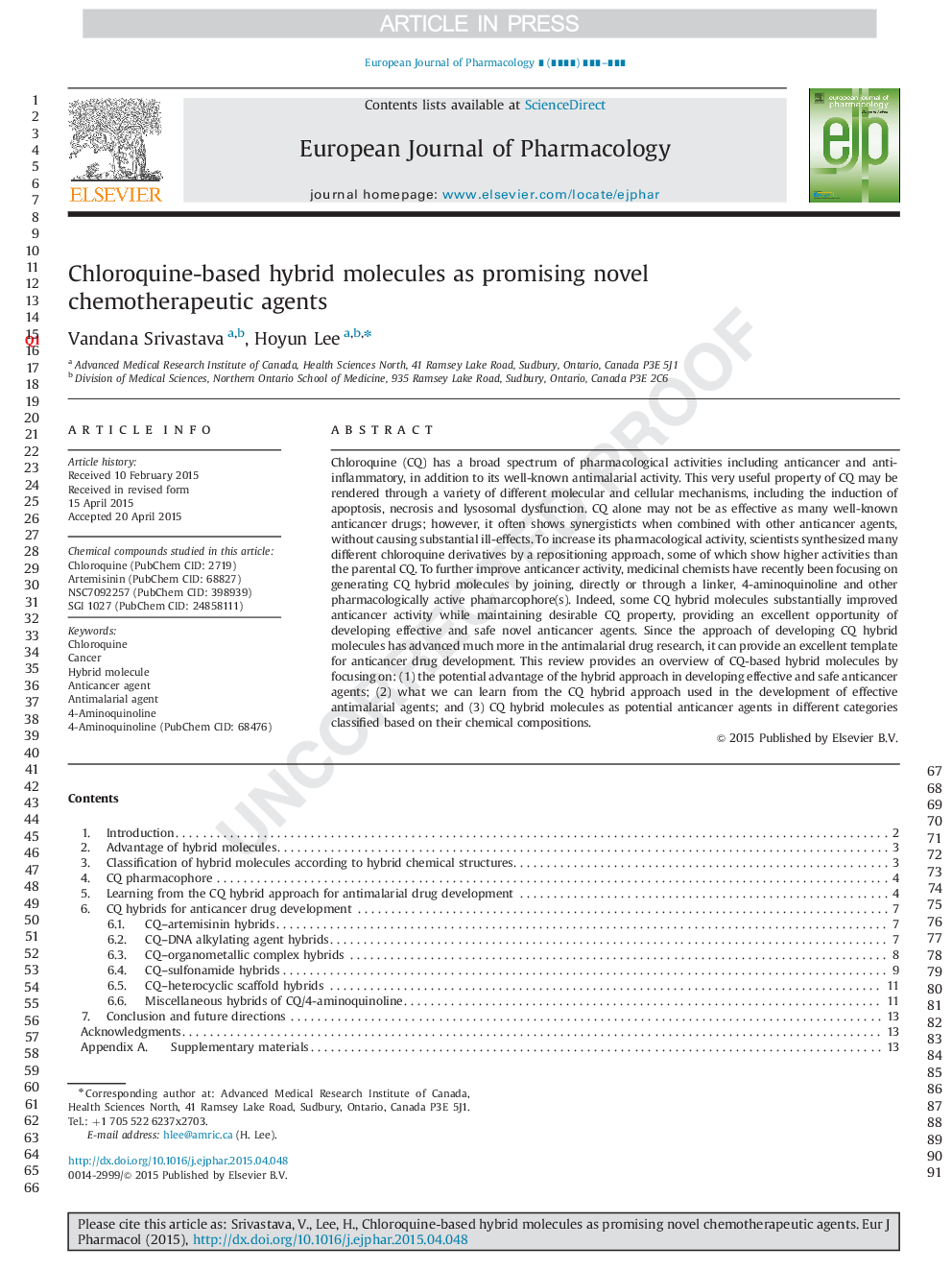| کد مقاله | کد نشریه | سال انتشار | مقاله انگلیسی | نسخه تمام متن |
|---|---|---|---|---|
| 5827141 | 1558919 | 2015 | 15 صفحه PDF | دانلود رایگان |
عنوان انگلیسی مقاله ISI
Chloroquine-based hybrid molecules as promising novel chemotherapeutic agents
ترجمه فارسی عنوان
مولکول های هیبرید مبتنی بر کلروکین به عنوان عوامل شیمی درمانی جدید امیدوار کننده است
دانلود مقاله + سفارش ترجمه
دانلود مقاله ISI انگلیسی
رایگان برای ایرانیان
کلمات کلیدی
موضوعات مرتبط
علوم زیستی و بیوفناوری
علم عصب شناسی
علوم اعصاب سلولی و مولکولی
چکیده انگلیسی
Chloroquine (CQ) has a broad spectrum of pharmacological activities including anticancer and anti-inflammatory, in addition to its well-known antimalarial activity. This very useful property of CQ may be rendered through a variety of different molecular and cellular mechanisms, including the induction of apoptosis, necrosis and lysosomal dysfunction. CQ alone may not be as effective as many well-known anticancer drugs; however, it often shows synergisticts when combined with other anticancer agents, without causing substantial ill-effects. To increase its pharmacological activity, scientists synthesized many different chloroquine derivatives by a repositioning approach, some of which show higher activities than the parental CQ. To further improve anticancer activity, medicinal chemists have recently been focusing on generating CQ hybrid molecules by joining, directly or through a linker, 4-aminoquinoline and other pharmacologically active phamarcophore(s). Indeed, some CQ hybrid molecules substantially improved anticancer activity while maintaining desirable CQ property, providing an excellent opportunity of developing effective and safe novel anticancer agents. Since the approach of developing CQ hybrid molecules has advanced much more in the antimalarial drug research, it can provide an excellent template for anticancer drug development. This review provides an overview of CQ-based hybrid molecules by focusing on: (1) the potential advantage of the hybrid approach in developing effective and safe anticancer agents; (2) what we can learn from the CQ hybrid approach used in the development of effective antimalarial agents; and (3) CQ hybrid molecules as potential anticancer agents in different categories classified based on their chemical compositions.
ناشر
Database: Elsevier - ScienceDirect (ساینس دایرکت)
Journal: European Journal of Pharmacology - Volume 762, 5 September 2015, Pages 472-486
Journal: European Journal of Pharmacology - Volume 762, 5 September 2015, Pages 472-486
نویسندگان
Vandana Srivastava, Hoyun Lee,
